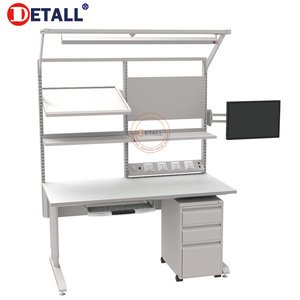Introduction to Check Computer Operating
In today’s fast-paced digital environment, ensuring your computer operates efficiently is crucial for optimal performance. Check computer operating refers to the process of monitoring and analyzing various components of your computer system to ensure everything is running smoothly. Regular checks can help detect potential issues before they escalate, keeping your system healthy and efficient.
Types of Checks for Computer Operating
When you check computer operating, there are several types of checks you can perform, each serving a specific purpose in maintaining your computer's functionality:
- Hardware Checks: Assessing the physical components such as RAM, CPU, hard drives, and GPUs for any signs of damage or wear.
- Software Checks: Ensuring that your applications, operating systems, and drivers are up to date and functioning correctly.
- System Performance Checks: Evaluating response times, loading speeds, and overall system responsiveness to identify any potential slowdowns.
- Network Checks: Monitoring internet connectivity and speed, ensuring stable connections for efficient online operations.
Function and Feature of Checking Computer Operating
The primary function of regularly checking your computer's operating capabilities is to maintain a smooth user experience and preemptively address issues. Here are essential features of the check computer operating process:
- Error Diagnosis: Quickly identifies any operational errors or system warnings, facilitating timely interventions.
- Resource Monitoring: Keeps track of CPU usage, memory allocation, and disk space to prevent overloads.
- Performance Optimization: Provides recommendations based on usage patterns to enhance speed and efficiency.
- Security Alerts: Detects malware or security vulnerabilities, enabling immediate action to safeguard your data.
How to Check Computer Operating: Best Practices
Incorporating a routine for how to check computer operating can greatly enhance your computer's longevity and efficiency. Below are some best practices for efficient checking:
- Regular Software Updates: Ensure that your operating system and all applications are consistently updated to the latest versions.
- Scheduled Maintenance: Set a monthly schedule for comprehensive hardware and software checks to identify any malfunction or degradation.
- Utilize Monitoring Tools: Employ system monitoring software that offers real-time tracking of your hardware's performance metrics.
- Run Diagnostic Tests: Regularly conduct tests available through your operating system or third-party tools to check hard drives and RAM functionality.
- Backup Important Data: Always back up your data before performing extensive checks or updates to prevent data loss in case of failure.








































